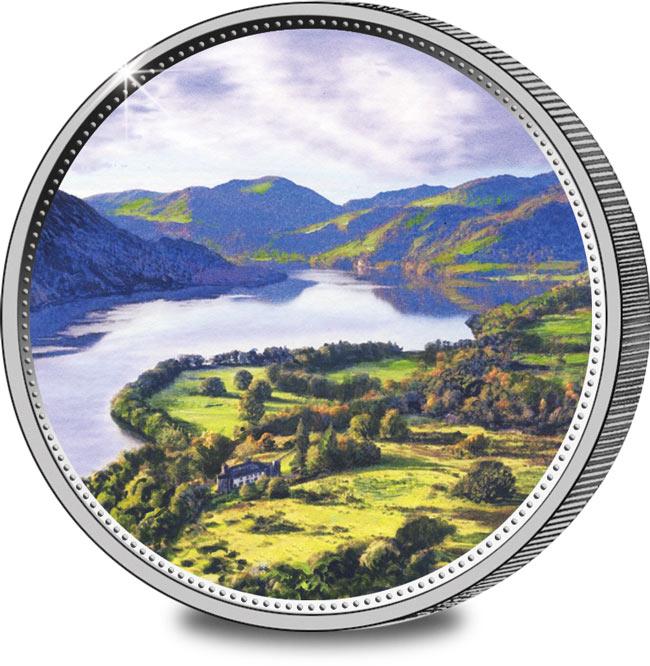-no-button.jpg)
 |
Location: Cumbria, North West England
Date completed: During ordovicion period, c. 458
million years ago
Designers/builders: Natural feature
Function: Tourist centre, farming, forestry and
industry
|
Surely nowhere has had such persuasive and poetic advocates as
the Lake District. William Wordsworth and his companions, Samuel
Taylor Coleridge and Robert Southey, were collectively known as the
"lake poets", because of their love of the area and the poetry that
it inspired within them. Wordsworth in particular was born in
the area - at Cockermouth - and lived for sixty of his 80 years
there. Perhaps his most famous work, "I Wandered lonely as a
cloud", was inspired by the sight of "… a crowd, A host, of golden
daffodils, Beside the lake…" on the shores of Ullswater. In 1810
Wordsworth published the "Guide to the Lakes", which was
influential in popularising the Lake District as a destination for
tourists, particularly after the railways made access easier for
more people. Others before Wordsworth had visited and written of
the Lake District, not always in glowing terms. In 1724 Daniel
Defoe in "A Tour Thro' the Whole Island of Great Britain", said
that Westmorland was, "… the wildest, most barren and frightful of
any that I passed over in England…". Indeed for many, wild, untamed
landscape was dangerous and threatening, an impression that was to
change through the efforts of the Romantic poets and increased
tourism. Many other poets, authors and artists were drawn to the
Lakes, either as residents or visitors, including Thomas de Quincy,
Percy Bysshe Shelley, Sir Walter Scott, John Keats, Thomas Carlyle
and Lord Tennyson. In the 20th century, Beatrix Potter, the
children's author, lived and farmed at Hill Top Farm, in Near
Sawrey. She wrote many of her books there, including "The tale of
Jemima Puddle-Duck".
The Lake District is located in the North West of England,
previously divided among the counties of Cumberland, Westmorland
and Lancashire, but today wholly within the new country of Cumbria.
It includes Scafell Pike, at 3,209 ft (978 m) the highest mountain
in England, as well as all the land in England higher than 3,000 ft
(914 m). As the name suggests, it is also an area of spectacular
and beautiful lakes, including Wastwater, the deepest lake in
England, and Windermere, the longest.